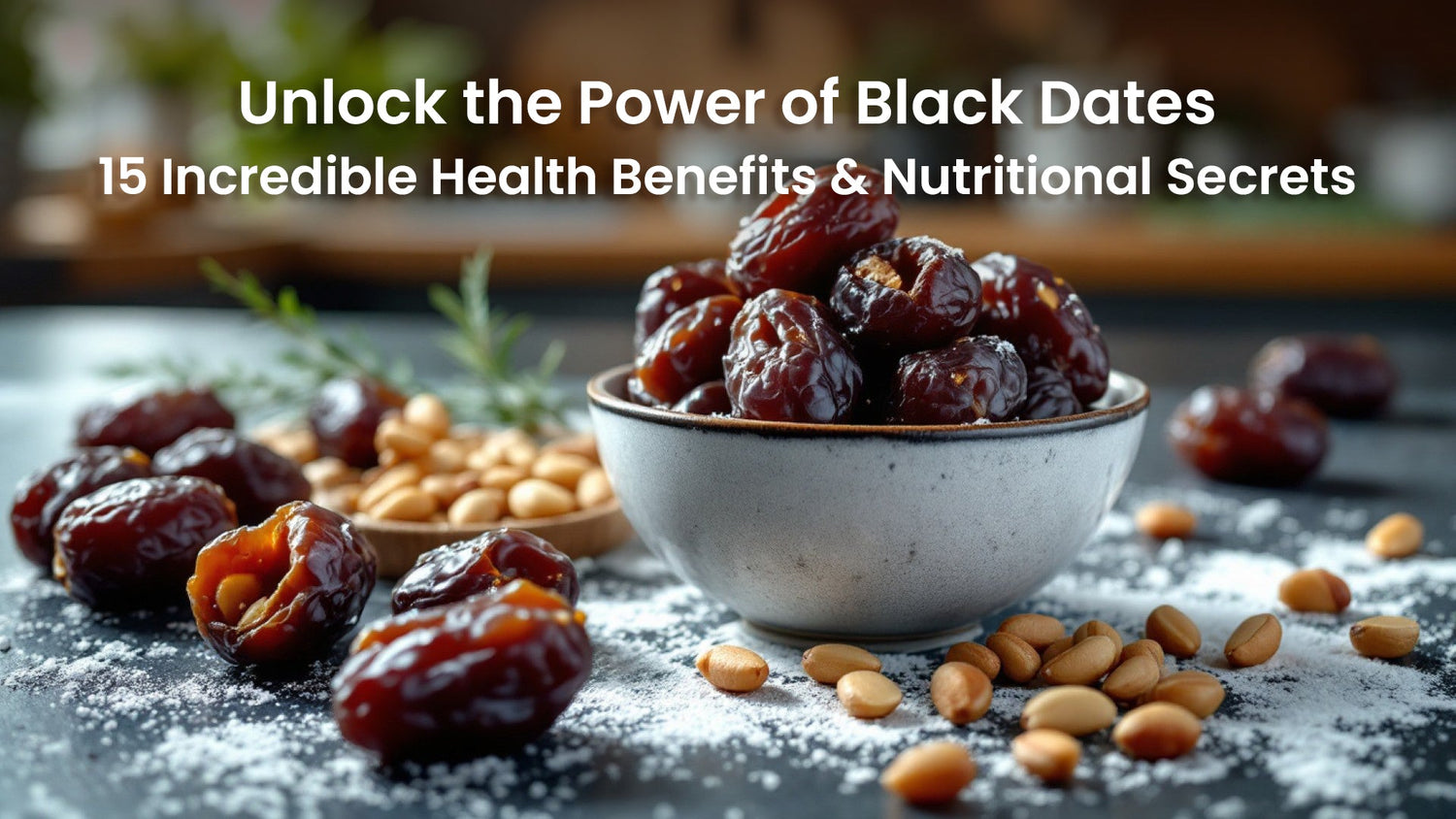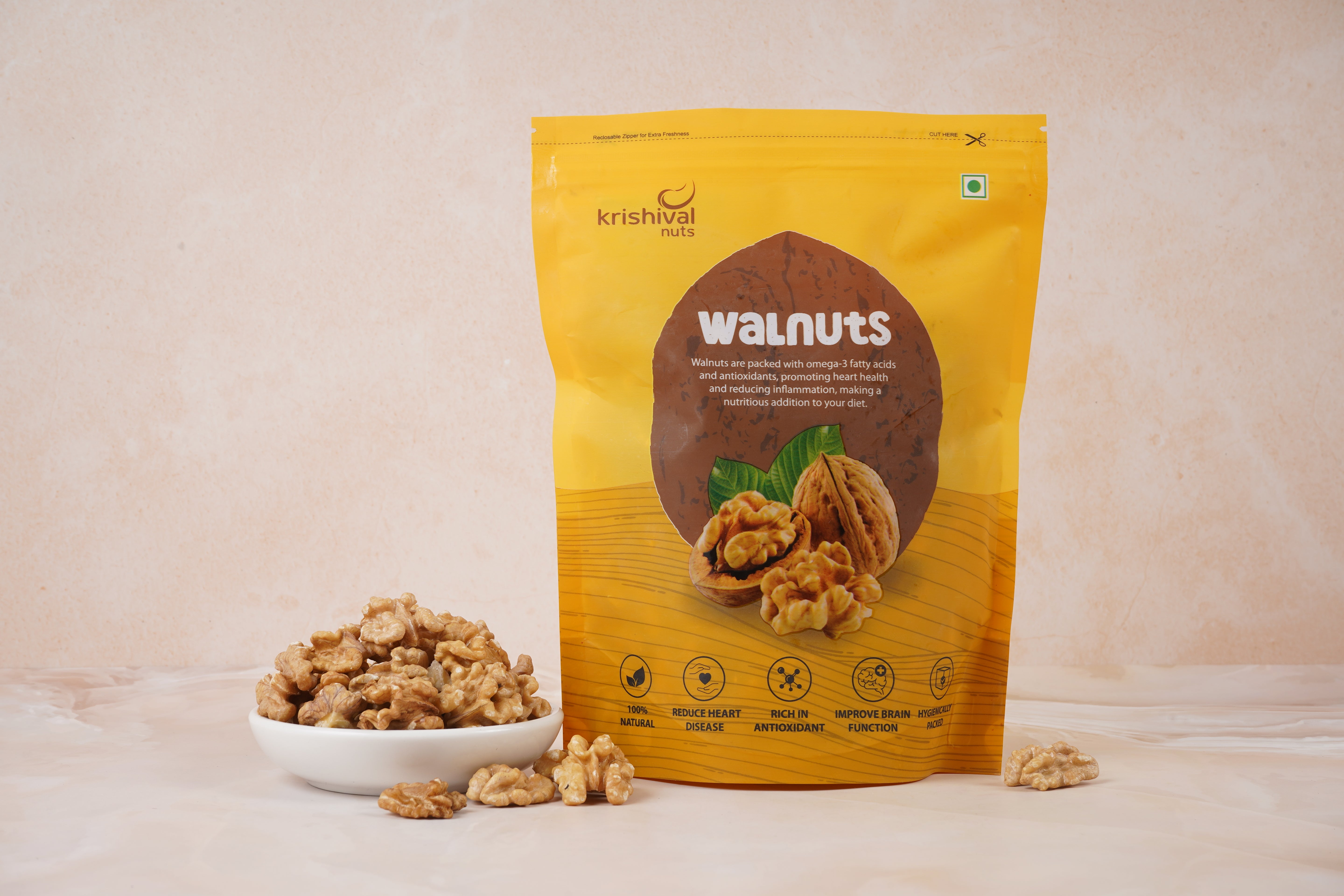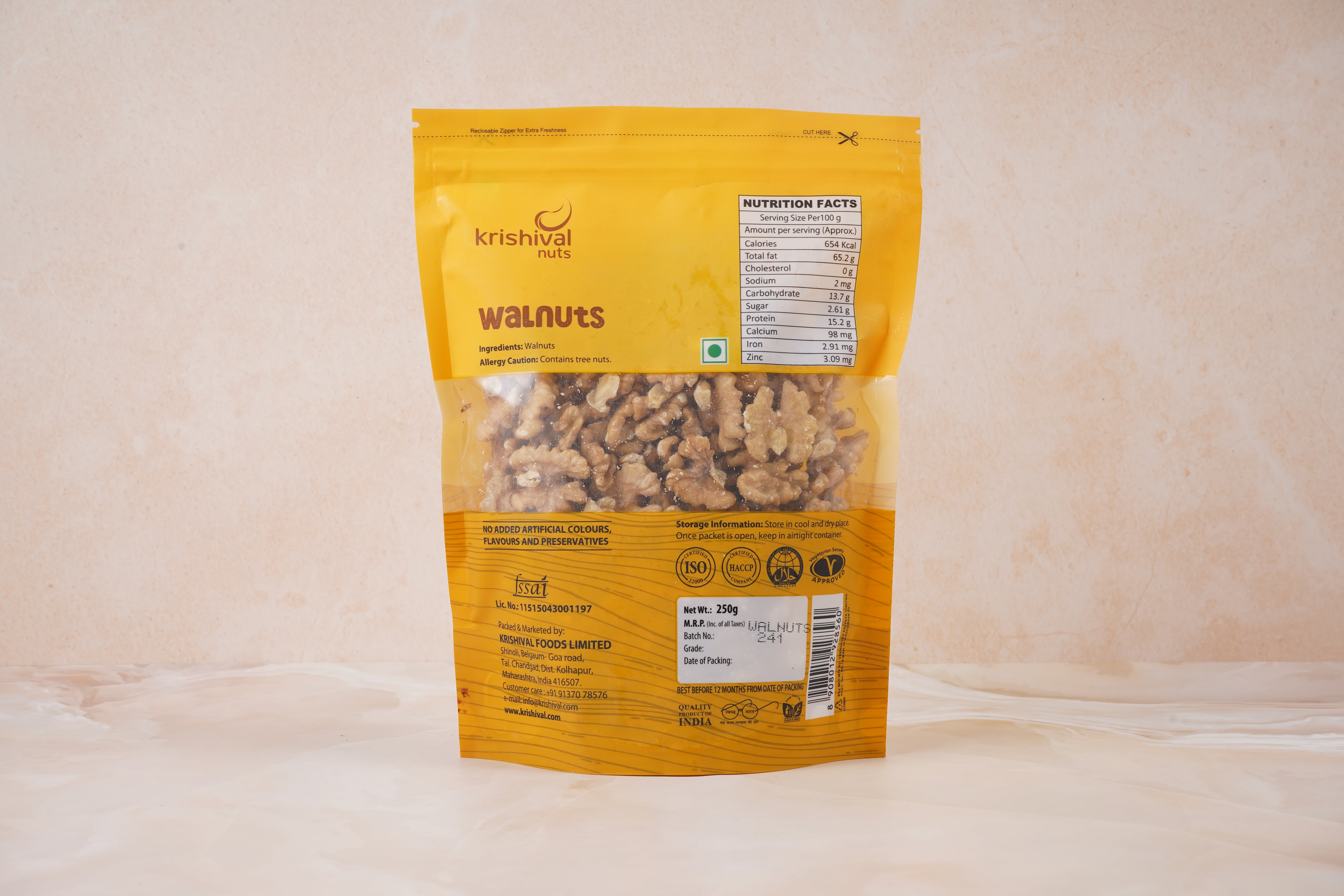Unlock the Power of Black Dates: 15 Incredible Health Benefits & Nutritional Secrets
Black dates, an ancient superfood, have been cherished for centuries, not just for their delightful sweetness and chewy texture, but as a natural energy powerhouse. These dark gems boast a rich history and an even richer nutritional profile. This article offers a comprehensive guide to understanding the science-backed health benefits of black dates, their impressive nutritional value, and simple ways to enjoy them for better health. Krishival's commitment to wholesome foods is reflected in highlighting such nourishing options. Many people enjoy black dates for their numerous health benefits and nutritional value.
What Exactly Are Black Dates? A Quick Look at This Natural Delicacy
Black dates are the fruit of the date palm tree, scientifically known as Phoenix dactylifera. They typically present a dark, almost black color and a distinctively wrinkled skin when dried. The texture of black dates is wonderfully chewy, and their taste is often described as rich and caramel-like. With origins tracing back to ancient cultivation in regions like the Middle East, black dates have a long and storied history. While there are many types of dates, such as Medjool and Deglet Noor, black dates often represent a later stage of ripeness or can be a specific variety distinguished by its deep color and intense sweetness. Learning about different types of dates can help you appreciate their unique qualities. The date palm tree (Phoenix dactylifera) is a remarkable plant with a long history of providing sustenance.
Nutritional Powerhouse: Unpacking the Goodness in Black Dates
Black dates' nutrition profile reveals them as a concentrated source of energy and vital nutrients. A standard serving of about 2-3 dates (approximately 40g) provides a significant amount of calories, primarily from carbohydrates in the form of natural sugars like glucose, fructose, and sucrose. However, black dates are also an excellent source of dietary fiber, which helps balance sugar absorption. They contain a small amount of protein and are virtually fat-free. Key vitamins found in black dates include Vitamin A, Vitamin K, and several B-vitamins such as B6 and folate. They are also packed with essential minerals like potassium (often more than bananas by weight), magnesium, iron, copper, manganese, calcium, and phosphorus. For precise nutritional values, consult the USDA FoodData Central.
Here's a general look at the nutrients in a 100-gram serving of dates (values can vary by type and ripeness):
-
Calories: ~277-314 kcal
-
Carbohydrates: ~75g
-
Sugars: ~63-66g (natural sugars)
-
Fiber: ~7-8g (around 20-30% DV)
-
Protein: ~2g
-
Potassium: ~15-20% DV
-
Magnesium: ~13-14% DV
-
Iron: ~5% DV
-
Copper: ~19-40% DV
-
Manganese: ~13% DV
-
Vitamin B6: ~12-15% DV
Top 15 Health Benefits of Black Dates (Backed by Science)
1. Boosts Digestive Health and Relieves Constipation
Black dates for digestion are highly effective due to their impressive fiber content. This fiber, comprising both soluble and insoluble types, promotes regular bowel movements and helps prevent constipation by adding bulk to the stool and aiding its smooth passage. Furthermore, the fiber in dates supports a healthy gut microbiome, which is crucial for overall digestive wellness. The benefits of dietary fiber are well-documented for maintaining digestive health.
2. Rich Source of Disease-Fighting Antioxidants
Black dates are packed with various antioxidants, which are compounds that protect your cells from damage caused by unstable molecules called free radicals. Key antioxidants found in black dates include flavonoids, carotenoids, and phenolic acids. These powerful substances help combat oxidative stress and inflammation in the body, potentially reducing the risk of several chronic diseases like heart disease, cancer, and Alzheimer's.
3. Natural Energy Booster
Black dates are a fantastic natural energy booster because of their high content of natural sugars such as glucose, fructose, and sucrose. These sugars provide a quick source of energy, while the fiber present helps to ensure this energy is released more steadily, preventing sharp spikes and crashes in blood sugar levels. This makes them an ideal snack for a pick-me-up or before physical activity.
4. Supports Heart Health
The benefits of eating black dates extend to supporting heart health in several ways. Black dates are rich in potassium, a mineral known to help regulate blood pressure. Additionally, the fiber in dates can contribute to lowering LDL (bad) cholesterol levels, which is a significant risk factor for heart disease. Antioxidants in dates also play a role in protecting heart health.
5. Strengthens Bones and Prevents Osteoporosis
Black dates contribute to strengthening bones and may help prevent conditions like osteoporosis. This is due to their rich content of essential minerals such as calcium, phosphorus, magnesium, manganese, and copper. These minerals are all vital components for maintaining bone density and structural integrity. Regular intake of these nutrients supports overall bone health.
6. Aids in Anemia Prevention and Treatment
Black dates are a good source of iron, which is a crucial component of hemoglobin – the protein in red blood cells that carries oxygen throughout the body. Consuming iron-rich foods like black dates can help boost hemoglobin levels, thereby aiding in the prevention and treatment of iron-deficiency anemia. This can alleviate symptoms like fatigue and weakness associated with anemia.
7. May Improve Brain Function & Health
Emerging research suggests that black dates may improve brain function and health. The antioxidants present in dates, such as flavonoids, are believed to reduce inflammation and oxidative stress in the brain. Some studies, primarily laboratory and animal studies, indicate that dates might help lower inflammatory markers and reduce the activity of amyloid beta proteins, which can form plaques in the brain associated with neurodegenerative diseases like Alzheimer's.
8. Promotes Healthy Skin
The benefits of eating black dates can also be seen in healthier skin. Black dates contain vitamins like Vitamin C and Vitamin D (though in smaller amounts, Vitamin C is more prominent), which contribute to collagen production, promoting skin elasticity and potentially reducing the appearance of wrinkles. The antioxidants in dates also help fight free radical damage, which can accelerate skin aging.
9. Can Be Beneficial for Weight Management (in moderation)
Black dates, when consumed in moderation, can be beneficial for weight management. The significant fiber content in dates promotes satiety, helping you feel fuller for longer, which can lead to a reduction in overall calorie intake. While they are calorie-dense due to natural sugars, their fiber and nutrient profile make them a healthier alternative to processed sweets.
10. Supports a Healthy Nervous System
Black dates support a healthy nervous system thanks to their content of B-vitamins, potassium, and magnesium. B-vitamins, including B6, play a crucial role in normal nerve function and the production of neurotransmitters. Potassium is essential for nerve signal transmission and muscle function, while magnesium also contributes to healthy nerve communication.
11. May Promote Natural Labor (in late pregnancy)
Some studies suggest that consuming black dates in the later stages of pregnancy may promote natural labor. It's theorized that compounds in dates might help with cervical dilation and potentially reduce the need for labor induction. Additionally, they can provide a good source of energy for pregnant women. However, pregnant individuals should always consult their healthcare provider for advice.
12. Good Source of Essential Vitamins
Black dates provide a good source of essential vitamins that contribute to overall health. These include B-complex vitamins like thiamin (B1), riboflavin (B2), niacin (B3), pantothenic acid (B5), and pyridoxine (B6), as well as Vitamin A and Vitamin K. These vitamins are involved in numerous bodily processes, from energy metabolism to immune function and blood clotting.
13. Helps Regulate Blood Sugar (Low Glycemic Index)
Despite their sweetness, black dates generally have a low to medium glycemic index (GI). This means they don't cause a rapid spike in blood sugar levels for most people, especially when eaten in moderation. The fiber in dates plays a key role by slowing down the absorption of sugar into the bloodstream. However, individuals with diabetes should still monitor their intake and consult their doctor.
14. Potential Anti-Inflammatory Properties
Black dates possess potential anti-inflammatory properties, largely attributed to their high concentration of antioxidants like flavonoids and phenolic acids. These compounds can help neutralize free radicals and reduce oxidative stress, which are key drivers of inflammation in the body. Studies suggest that date consumption may help lower inflammatory markers.
15. Contributes to Hair Health
Black dates can contribute to hair health due to their nutrient profile. They are a source of iron, which is important for preventing hair loss associated with iron deficiency. Additionally, B-vitamins like biotin (B7) and pantothenic acid (B5), along with other minerals found in dates, support hair strength and follicle health.
How to Incorporate Black Dates into Your Diet: Delicious & Easy Ideas
Incorporating black dates into your diet is easy and adds a touch of natural sweetness and rich flavor to many dishes. Here are some delicious and easy ideas for how to eat black dates:
-
Enjoy them as a standalone snack for a quick energy boost.
-
Chop black dates and add them to your morning oatmeal or yogurt for extra sweetness and texture.
-
Blend black dates into smoothies to act as a natural sweetener and thickener.
-
Use black dates in baked goods like muffins, breads, and cookies, often reducing the need for refined sugar.
-
Create a simple, elegant appetizer by stuffing black dates with nuts (like almonds or walnuts) or soft cheese.
-
Make date paste by blending soaked dates with a little water; use this as a natural sweetener in various recipes.
-
Roll chopped dates with oats, nuts, and seeds to create homemade energy balls or bars.
-
Add chopped black dates to salads for a sweet counterpoint to savory ingredients.
-
Incorporate black dates into savory dishes like Middle Eastern tagines or stews for a complex depth of flavor. Consider trying our favorite date energy ball recipe (as a placeholder for a future recipe). For more inspiration, explore healthy date-sweetened recipes.
Black Dates: How Many to Eat Daily and Potential Considerations
A common question is "how many black dates per day is healthy?" For most healthy adults, a moderate intake of 2-4 dates per day is generally suggested, though this can vary based on individual calorie needs and health conditions. While black dates are nutritious, there are potential considerations. Their high natural sugar content means moderation is key, particularly for individuals managing diabetes. Black dates are also calorically dense, so those monitoring their weight should be mindful of portion sizes. Allergic reactions to dates are rare but possible. Due to their high fiber content, consuming a very large quantity of dates, especially if you're not used to a high-fiber diet, might lead to digestive discomfort for some individuals. It's always wise to advise consulting a doctor or dietitian for personalized advice, particularly if you have pre-existing health conditions. Practicing mindful eating can help you enjoy dates as part of a balanced diet. For those with diabetes, managing fruit intake with diabetes is an important consideration.
Embrace the Sweet Benefits: Make Black Dates Part of Your Healthy Lifestyle
Black dates offer a remarkable package of nutrition, energy, and versatility, supporting overall health in numerous ways. From boosting digestion and energy levels to protecting your heart and brain, these sweet fruits are a valuable natural food. Adding black dates to your diet is a simple and delicious way to embrace a healthier lifestyle. We encourage you to try incorporating black dates into your meals and snacks. For more insights into nutritious choices, explore more healthy eating tips on our blog or discover more natural food products.
Frequently Asked Questions (FAQs) about Black Dates
Q1: What is the best time to eat black dates?
A: You can enjoy black dates anytime! They are great for a pre-workout energy boost or to satisfy a sweet craving. Some people prefer eating them in the morning for sustained energy throughout the day.
Q2: Are black dates better than regular (brown/yellow) dates?
A: Both black dates and other varieties like brown or yellow dates are highly nutritious and offer similar health benefits. Black dates might have a slightly higher concentration of certain antioxidants or a more intense flavor profile due to their ripeness, but all dates are beneficial. For a deeper dive, you can explore the differences between date varieties.
Q3: Can black dates help with increasing iron levels quickly?
A: Black dates are a good source of iron and can definitely contribute to your daily intake, helping to combat iron deficiency over time. However, for significant iron deficiencies, it's crucial to seek medical advice, as supplementation or other interventions might be necessary alongside dietary changes.
Q4: How should black dates be stored?
A: To maintain their freshness and prevent them from drying out, store black dates in an airtight container in a cool, dry place. They can also be refrigerated, which will extend their shelf life considerably, keeping them enjoyable for longer.









